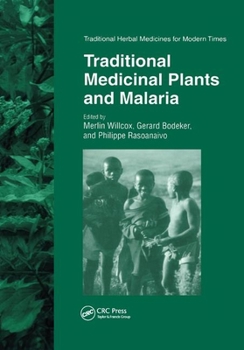Traditional Medicinal Plants and Malaria
(Part of the Traditional Herbal Medicines for Modern Times Series)
Select Format
Select Condition 
Book Overview
Malaria is an increasing worldwide threat, with more than three hundred million infections and one million deaths every year. The world's poorest are the worst affected, and many treat themselves with traditional herbal medicines. These are often more available and affordable, and sometimes are perceived as more effective than conventional antimalarial drugs.
The first book to be published on this subject, Traditional Medicinal Plants and Malaria explores the evidence for the safety and efficacy of some of these traditional medicines, and presents practical guidelines for designing studies on traditional plant-based antimalarial medicines, mosquito repellents, and insecticides. Systematic reviews of the literature and consensus guidelines form the main body of the book. Ethnomedical, ethnobotanical, pharmacological, phytochemical, toxicological, and clinical aspects of herbal antimalarials are also reviewed. These are supplemented by case studies of the most well-known traditional antimalarials.





